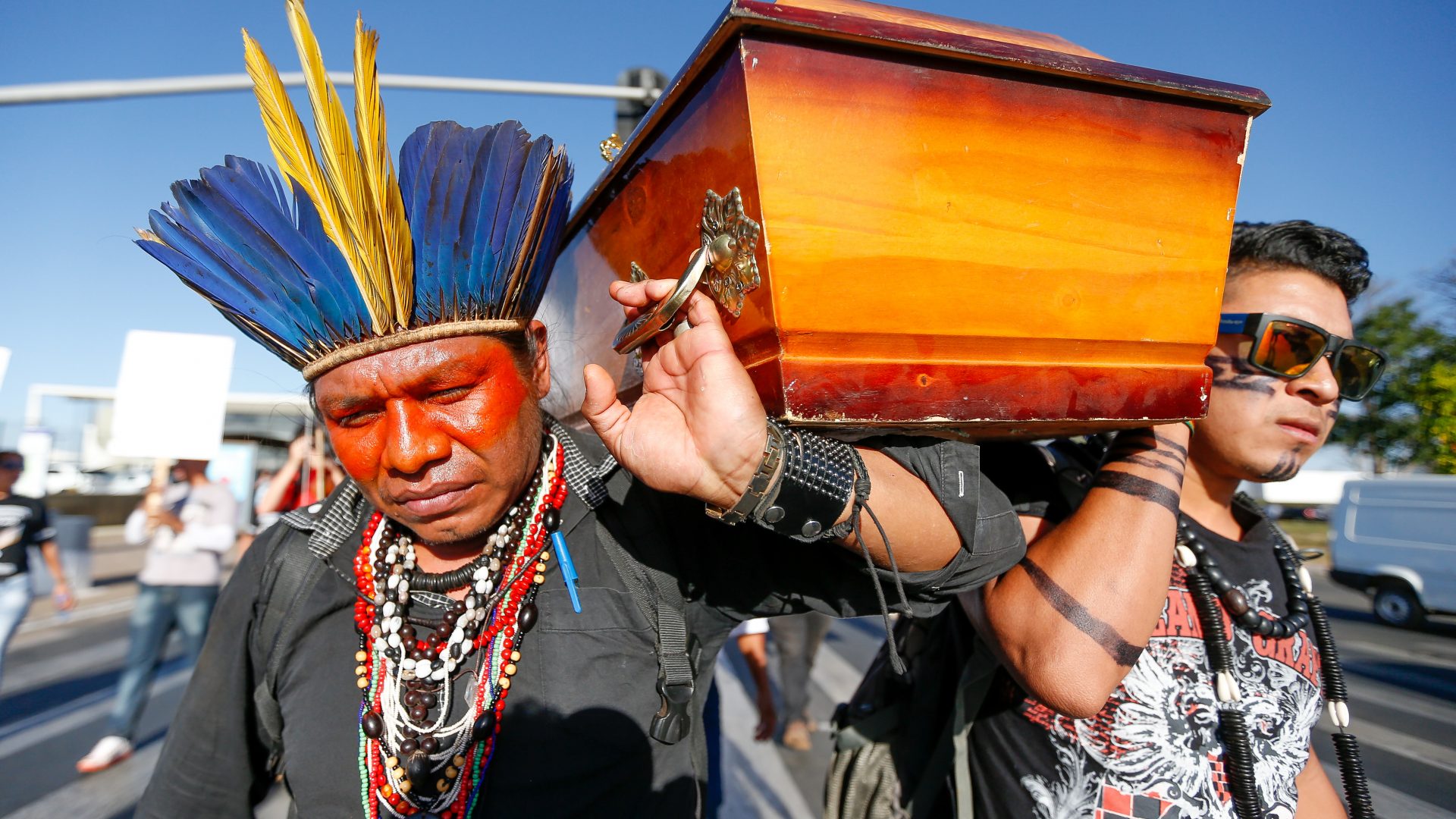For the members of the Guarani-Kaiowá indigenous group, the tekoha is sacred land — a place where they can practice teko, their traditional way of life. But despite being the second-largest indigenous ethnicity in Brazil according to 2010 census data, the Guarani-Kaiowá have very little tekoha to call their own.
Indeed, while the sprawling northern Brazilian indigenous lands of Yanomami and Vale do Javari are the size of European countries, the lands reserved for the Guarani-Kaiowá and Guarani-Ñandeva subgroup are far more restricted, often situated dangerously close to urban expanses and privately held farmland in Brazil’s Center-West soy belt.
In the entire state of Mato Grosso do Sul — home to the overwhelming majority of Brazil’s Guarani-Kaiowá — population density is such that there is approximately 13 hectares of land for each one of the state’s residents.
However, on Mato Grosso do Sul’s indigenous lands and reserves, there is just around half a hectare per person. In the Amambai indigenous land — the most populous Guarani-Kaiowá territory outside of urban zones — that proportion drops to just 3,000 square meters per person, less than a full football pitch.
Being prime land for crops and livestock, even cows have more land in Mato Grosso do Sul than the region’s indigenous population. Roughly 22 million hectares of the state are taken up by pasture, for over 19 million cattle heads.
The “Massacre of Guapo’y”
Guarani-Kaiowá indigenous lands are notoriously overpopulated. And this sense of confinement, combined with the looming threats of agribusiness and urban civilization, has resulted in a decades-long struggle for land — which...


 Search
Search






































